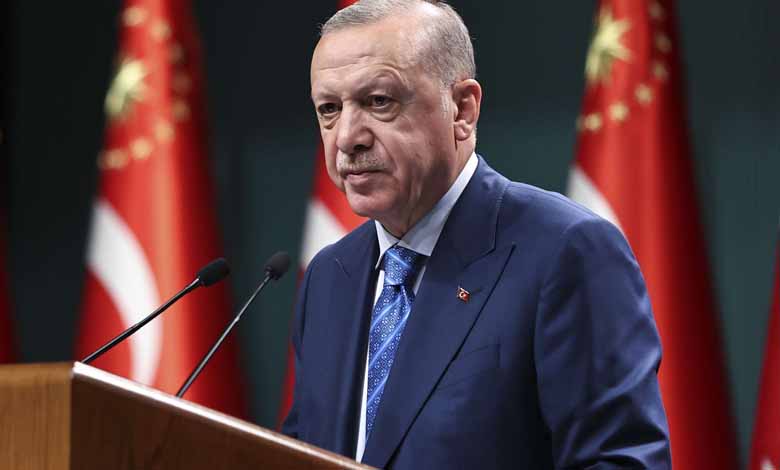Erdogan is taking advantage of the devaluation crisis to his advantage ahead of the elections

Turkey has announced that it will offer companies new incentives to swap money earned abroad for lira in exchange for a pledge not to buy foreign currency, the Financial Times reported.
The new program is the latest step in how Turkey is deploying a wide range of tools to boost the lira and boost its $800 billion economy ahead of presidential and parliamentary elections scheduled for May 14, the newspaper said.
Erdogan’s Popularity Erodes
The economy has eroded support for Erdogan and his ruling Justice and Development Party (AKP), the paper said, and a coalition of opposition political parties, known as the Six-Table, is expected to name a candidate in the coming weeks to challenge Erdogan, who has been in power for two decades.
Program details
Under the program, Turkey will provide a “transfer subsidy” of 2% when companies exchange international profits in lira with the central bank, and pledge not to buy foreign currency during a specified period, according to the central bank. The duration of the requested commitment has not been specified.
Exporters are already required to transfer 40% of their income from foreign currencies to the lira under rules announced last year, but the new program provides an incentive for companies to avoid a stable hold on the dollar in favor of the lira, as companies that transfer the extra money to the local currency can also use a special account to protect against the fluctuations of the lira, the paper reported.
New Program Impact
Liam Beach, economist at Capital Economics in London, said that “it is not clear whether this will have a significant impact because the incentives may not be large enough for companies to shift their remaining foreign currency earnings to the lira”, but this could represent “a first step towards tightening restrictions that force companies to convert foreign currency”.
He added: “If we have learned anything in Turkey over the past year, it is that the central bank will eventually fill any gap in the financial system to reduce demand for foreign currencies”.
The Central Bank of Turkey is seeking to raise the rate of bank deposits to 60% in the first half of this year, and to 55% by the end of 2022, up from 36% in January.
Many economists say the lira is still overvalued and will fall even further if not because of government subsidy measures, such as the private savings accounts, which are currency-protected and open to businesses and consumers and have helped stabilize in recent months.
Turkey also spent $85.5 billion last year intervening in the currency market in an effort to slow the lira’s fall, according to estimates by The Goldman Sachs, which takes into account foreign currency bought from exporters and then resales in the market.
The Central Bank of Turkey said in a report on Thursday that it expects inflation to fall to 22.3 percent by the end of the year after dropping to 64.3 percent in December. However, many private sector economists are concerned that price growth will accelerate again after the elections as accelerated government spending fuels a short-term but powerful jolt to Turkey’s economic activity.












